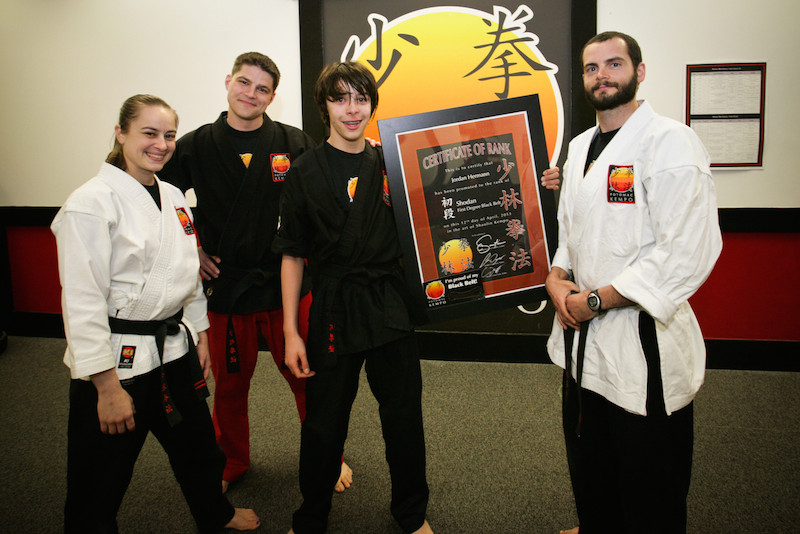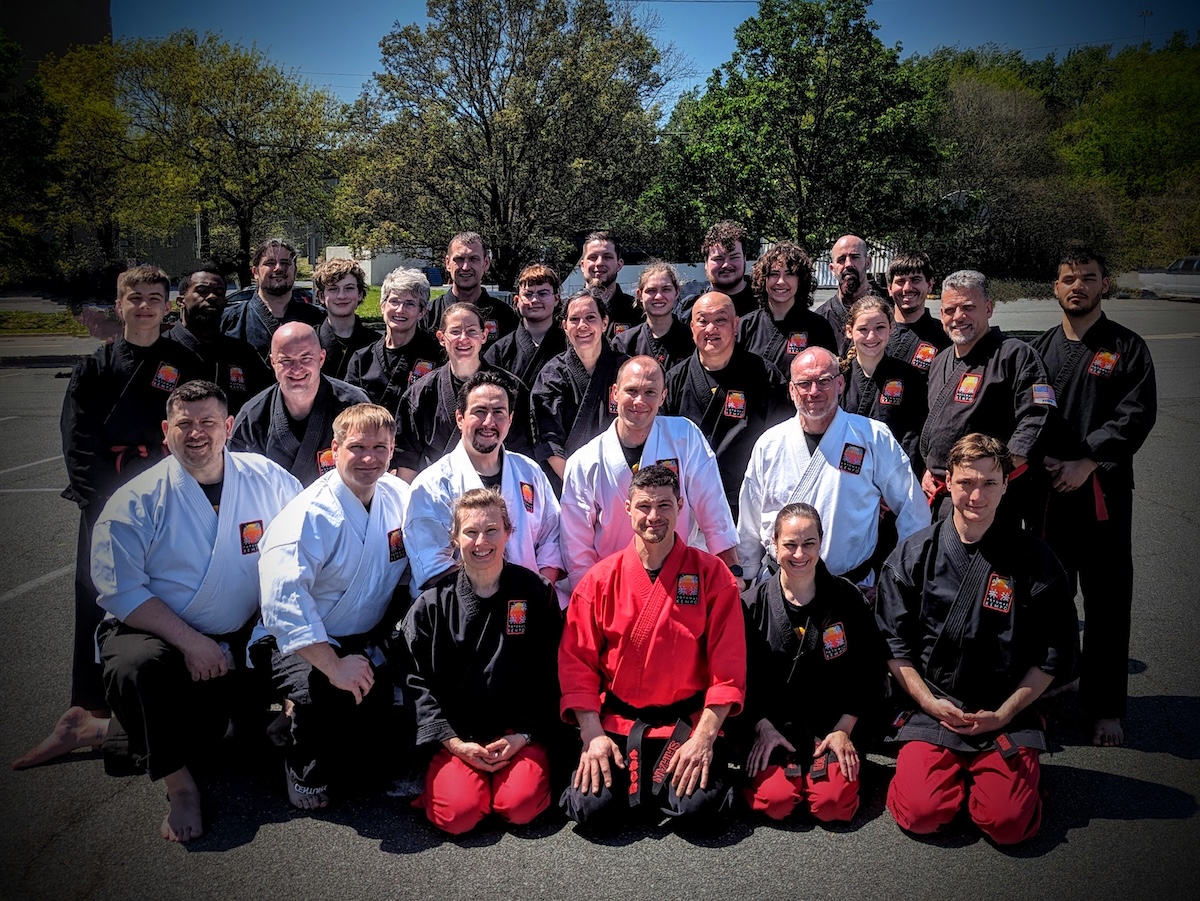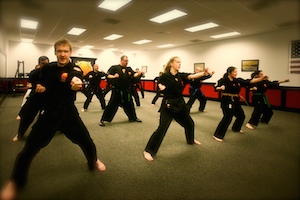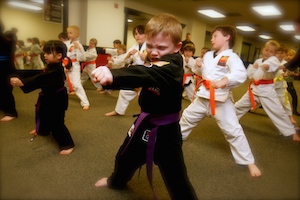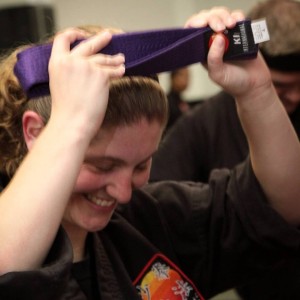 When Jordan first returned to the dojo after earning his adult Black Belt in 2013 — one of the youngest at Potomac Kempo to do so — he was on cloud nine. Passing the test was thrilling, but it even more, the experience was emotional.
When Jordan first returned to the dojo after earning his adult Black Belt in 2013 — one of the youngest at Potomac Kempo to do so — he was on cloud nine. Passing the test was thrilling, but it even more, the experience was emotional.
“This was the goal ever since I started when I was a kid,” Jordan says. “I always thought Black Belt was the coolest thing. Attaining that goal was huge for me. It’s like, you have this dream for your sport, and you’ve finally done it. It’s a reality, yet it’s overwhelming.”
But it didn’t take long back at the dojo for a different reality to set in. One of Jordan’s fellow students told him that once a martial artist has his Black Belt, then the real learning can begin. “He said, ‘From white to black is just learning the basics, and then you really start understanding what you’re capable of as a martial artist when you get your Black Belt,’” Jordan remembers.
Although it might have somewhat dampened his celebratory mood, that comment didn’t necessarily come as a surprise to Jordan, because stopping after he earned his Black Belt was never a consideration. “I kind of accepted the fact that I have a lot more to go,” he says. “You don’t all of a sudden know everything when you’re a Black Belt.”
Jordan, 16, and a junior at Annandale High School, has been studying kempo since he was 5. He remembers going to a fair where Potomac Kempo had set up a tent. A promotional wheel allowed people to spin for free classes. “My dad had me spin the wheel, and I got a month of free lessons,” Jordan says.
At the beginning, Jordan remembers a class full of children in brand-new white uniforms and belts that were a little tricky to put on. He was skeptical, but it didn’t take long for him to learn some defensive maneuvers, which he would enthusiastically show off at home. “I come home and say, ‘Mom, look what I can do now!’ I just thought it was the coolest thing ever.”
Jordan’s family moved some furniture to the perimeter of the living room, giving him space to practice. Each time he tested for a new belt, he would worry about not getting it. “There was always this fear that you’d be the one person who didn’t advance,” Jordan says. “You go in and feel great about it, take the test with your friends, then you think you could be the one who doesn’t pass.” His parents always assured him that the instructors wouldn’t invite him to test if he weren’t ready for it.
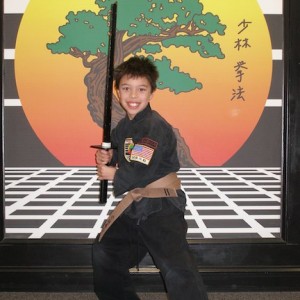 Over the years, Jordan has taken several classes each week, occasionally needing to pause his practice for a week or two to catch up with homework or high school sports — he swims in the winter and is a saxophonist in the school band.
Over the years, Jordan has taken several classes each week, occasionally needing to pause his practice for a week or two to catch up with homework or high school sports — he swims in the winter and is a saxophonist in the school band.
The discipline of martial arts training has helped Jordan’s endurance in swimming, but also his ability to focus and control his emotions and his body. “If you start feeling stressed out or freaked out, you can step back and relax for a minute,” he says.
At the end of his sophomore year, for example, Jordan and his classmates were given final projects for each class — which meant coming home with as many as four different final projects due within the month. “When you come home and start working on it, you realize it’s a lot more than you thought,” Jordan says. “You start thinking about getting it all done, not messing up, trying to get a good grade, and it’s easy to freak out.” Once he took a moment to step back and put everything in perspective, he was able to return to the work calmly and take on one assignment at a time.
Jordan began taking adult kempo classes in 2012. He is now 5’8”, but he still feels outsized by a lot of other students. It’s one thing to defend yourself against other kids, he says, but now he understands the advantage that adults may have over him in size or strength. His advantage is speed. “I’m faster than a lot of the adults I face. I try to use speed to my advantage, trying to move around, go to the side, find an opening.”
He says now that he is a Black Belt, it’s important for him to find his own style, and speed works to his advantage. “You can’t just go straight into someone, especially if you don’t have the height and weight. You need a style that works for you to defend yourself.”
These days, Jordan finds that much of his training returns him to the basics, and he understands that even the most complex maneuvers won’t be successful unless the student has nailed all the elementary components. “Great technique, a straight back, looking forward in the stances… Those kinds of things you have to do right,” Jordan says. If you’re not, the instructors will point them out, and that will stay in your mind for the rest of class.”
When people ask Jordan if he remembers a time before karate, he says, with the exception of one or two memories, not really. “I can’t even imagine the type of person I’d be like if I wasn’t in karate,” he says. “It’s been my life for so long, and it was such a big part of my childhood.”
To a 5-year-old today, he would say simply, “Don’t stop.” He would tell that young martial artist that there will be times when it seems like it’s taking forever to get the next belt, and there will be times when it’s really hard to keep going. “But when you do keep going,” he says, “it pays off.”
